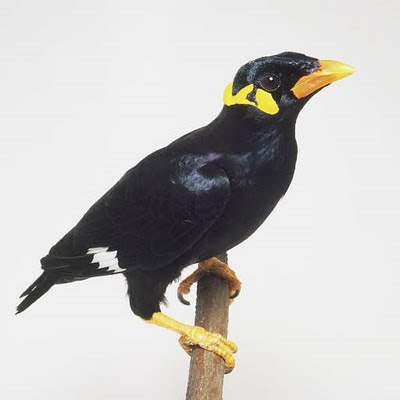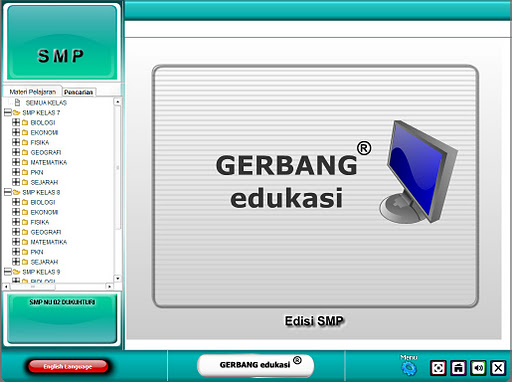Gugon tuhon, or taboos are also called, is a sort of prohibition (pepali) which circulated among the Java community. Generally, (the term) gugon tuhon circulated from parents to their children, or by the teacher to student. Gugon tuhon are behaviors that were not worth it, and believed to bring bad luck if you do. Thus, children are taught some things better not done, although sometimes difficult to accept common sense.

Gugon tuhon or prohibitions are generally delivered directly, or through stories and myths and legends through song-song Java (macapat). Lots of folk tales in which there is gugon tuhon in it.Typically, gugon tuhon contained in a story will be obeyed by the people of a certain area. Although there is no written prohibition (as in Java is just a lot of folklore transmitted orally and author unknown), comply with the restrictions that exist in the story.Although it seems implausible, but it is local knowledge of an area that should be preserved.
There are so many stories that contain a ban will be something in it.Call it as an example of a ban on the Banyumas, when the Duke of Banyumas conquered by soldiers Pahing Display on Saturday. In Javanese tradition, the day of death of the ancestor is sangaran (avoided) to perform a variety of such intent to carry out the marriage go away. Before his death, the Duke of Banyumas bequeath wewaler (ban) for people Banyumas, namely: (1) ora taxable lungan ing ignoble Pahing Setu, (2) ora got a lot of meat manganese, (3) ora taxable kulawu jongkla Riders horse, (4 ) ora taxable manggon omah sunduk satay (Herusatoto, 2012: 112-113).
In contrast to the ban for the Bagelen, Central Java, which is prohibited by Nyai Ageng Bagelen or Rara Wetan Bang. The ban reads: (1) ora taxable nganggo jarit Gadhung mlathi, (2) ora taxable nandur Dhele, (3) ora mbeleh got beef, (4) ora taxable lungan ing ignoble Slasa Wage (Ibid, 2012: 114). Pepali or prohibition is told in the fiber composition Cemporet R. Ng. Ranggawarsita.
Of course there are many wewaler (ban) that circulate in the community of Java, such as the prohibition should not be married to someone who was at her house in the southeast and northwest of the house itself. After investigation it turns out this may be related to the legend of Ki Ageng Mangir. Mangir village located northwest of the sultan's palace, while the Sultan's Palace is located in the southeast Mangir. As is well known that purportedly married Ki Ageng Mangir Pembayun, daughter Panembahan Senopati. Ki Ageng finally told Mangir die at the hands of law itself.
Or wewaler circulating in the area of the Holy, Central Java, which should not marry their children with people who live in the west of the river, because in the past their ancestral enemies. While in Kendal, Central Java, outstanding restrictions to build a house wall (Ibid, 2012: 118).
While wewaler contained in the Java song more on ethics, because it deals with human behavior. This is in contrast with the existing wewaler in legends or myths. Java is one of the songs in it are mengadung wewaler Pepali Ki Ageng Sela. Ki Ageng Sela is a character that appears in the early era of Islam developed in Java, where in time it appears a lot of characters who use the designation Ki Ageng. Ki Ageng told Sela also able to capture lightning in his hands.
In Fiber Pepali Ki Ageng Sela, written,
My Pepali ajinen mbrekati / tour slamet sarta kuwarasan / Pepali iku mangkene Aja gawe arrogant :/ / Aja aja ladak lan jail / Aja ati greedy / Lan wrote celimut / Lan wrote mburu aleman / Aja ladak, wong ladak Gelis dead pan / Lan wrote ati ngiwa / /
Bait is written in the first Canto Fiber Pepali Ki Ageng Dhandhanggula Sela in the form of a popular song for the Java community. If translated into Indonesian, pepali it would be like this: respect for the ban is blessed / after all, save and nourish the soul / ban it like this do not be arrogant :/ / do not be cruel and stupid / do not be greedy, greedy, and greedy / do not be long hand / do not hunt praise / not crabby because the grumpy will quickly die / Do not be a bad / /
The use of the word "wrote" that means "do not" confirm that these things should not be done. Interestingly, Ki Ageng Pepali Sela is valid not only for the people of Java, because of the restrictions include a few things, namely ethics to the teachings of Islam. In addition to Ki Ageng Pepali Sela, there are also Pepali Panembahan Senopati (Ibid, 2012: 106) which reads, "sak-turunku down, Manawa magut-soldier wrote linings linings batikan Riders horse".










1 comments:
thanks for your translation! :)
Post a Comment